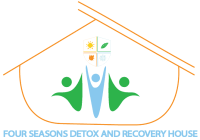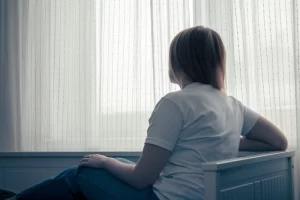Struggling with a Xanax addiction can be debilitating, especially as tolerance to the drug builds quickly, and Xanax withdrawal symptoms are particularly and notoriously severe. That’s why we never, ever recommend undergoing Xanax detox alone. In fact, withdrawal symptoms can be deadly if not done correctly, which is why we always recommend going through a rehab facility for inpatient.
What is Xanax Detox?
Xanax belongs to a category of drugs known as “benzodiazepines” – benzos, for short – which are prescribed for anxiety and sleeping disorders. Xanax is a powerful benzo that quickly induces sedation, reducing mental activity. Its sedating qualities are appealing to those with anxiety, depression, or racing thoughts, and that’s often how addiction begins.
The thing about Xanax and other benzos, however, is that they’re incredibly addictive. Even when prescribed to patients who need them for medical conditions, they really are only meant for short-term use, as people quickly become dependent on them, both physically and psychologically. And people build a tolerance to them fast, requiring more and more milligrams to get the same results.
Before long, a person may find themselves experiencing a full-blown Xanax addiction. At this stage, they struggle to get through the day without more. They may experience withdrawal symptoms if they’re without them or may find it difficult to function without Xanax in their system.
At this stage, it’s time to consider a Xanax detox through a treatment center. This involves tapering off your consumption while under careful observation and guidance of a team of licensed professionals who are there to help you be successful while helping to alleviate Xanax withdrawal symptoms and any potential dangers or risks to your health.
Any time a person withdraws from drugs, unpleasant symptoms are likely to arise. But, by doing so with the right professional supervision, it’s possible.
Why is Xanax Detox Necessary?
An addiction to Xanax won’t go away by itself. Because it’s not only psychologically but also physically addictive, it’s very hard to quit – in fact, it’s almost impossible without proper professional care. If you’re wondering how to detox from Xanax naturally, the reality is that there isn’t some magical household cure to eliminate your cravings.
The only way to move forward from your addiction is through detox. During this process, the body slowly gets reaccustomed to not having the drug in its system any longer. During this time, it regains the ability to maintain homeostasis without relying on Xanax in the body.
And it’s necessary because Xanax and other benzos do begin to cause long-term health consequences. Among them are cognitive changes that can cause long-term damage to your memory, focus, motivation, and ability to regulate your own emotions. Also, Xanax is a drug that’s fairly easy to overdose on, potentially resulting in death. Xanax can be all the more dangerous if you’re taking it with alcohol or other medications.
Xanax Withdrawal Symptoms
Ultimately, each person’s experience while detoxing from Xanax can be unique. It depends on one’s unique body chemistry, how much they were using, and how frequently.
Overall, the most common symptoms include the following:
· Anxiety
· Depression
· Irritability/aggressiveness
· Restlessness
· Sleeplessness
· Headaches
· Muscle spasms
· Rapid heartbeat
· Sweating
· Tremors
· Difficulty concentrating
· Derealization
· Paranoia
· Panic attacks
· Seizures
It’s the last symptom – seizures – that can be very dangerous and so, are more likely to occur if a person tries to quit cold turkey. Again, this is why we strongly discourage you from undergoing Xanax detox without professional help. A licensed professional will take into account your personal usage and help come up with a tapering-off method that is right for you.
The Xanax Detox Process: What to Expect
As we said, the detox process is unique for everyone depending on a number of factors. But overall, the first step is finding the right treatment center. Look up online reviews in order to find out what kinds of accommodations and resources each local center has to offer you.
Typically, withdrawal symptoms begin within about 24 hours after you stop taking the drug. From there, they usually peak within about 2-3 days after cessation and taper off after about a week. During this time, you should prepare for a rebound effect – in other words, you may experience more anxiety than you initially did prior to using Xanax, as your body is trying to regain its sense of equilibrium. This will pass as your body finally adjusts.
Question: How long does it take to detox from Xanax? In fact, there are three stages to the process:
Stage 1: Early Withdrawal: Within the first 2 days of the withdrawal are when you’re likely to notice symptoms like increased anxiety, irritability, difficulty sleeping, and cravings. You may also experience headaches and body aches.
Stage 2: Acute Withdrawal: Days 3-6 tend to be the acute period, where your cravings are the strongest and your symptoms the most severe. This is when you may develop almost flu-like symptoms as your body is craving the drug.
Stage 3: Late Withdrawal: Once about a week has passed, your physical symptoms will likely be past their peak. During this time, however, psychological symptoms like anxiety and depression may exist for a few weeks.
Again, we want you to keep in mind that the exact timeline may be slightly different for everyone. And, once again, a licensed professional will guide you through the process the entire time.
Detoxing from Xanax and Finding Recovery
If you’ve ever wondered how to detox from Xanax, the only correct answer is through the guidance of a licensed professional. And fortunately, there are detox centers out there that are equipped with experienced and trained staff who know how to help a person detox from Xanax, specifically. Detoxing from such an addictive drug isn’t easy, and doing it unsupervised can be dangerous, but again, help is available. That way, you can get back to your life and regain control once and for all.



